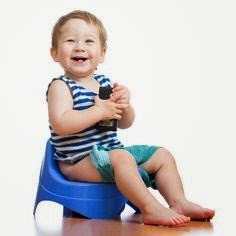Now that you know when to start potty training, it is time for you to understand what all preparations you would have to do before you start working on the plan. Ideally, your child can take anywhere between days to months to learn potty training properly. However, if you really want them to learn it within 3 days, then you must focus on the nit picks of potty training. Often, people tell you to how to potty train your child, however, no one would tell you how should you begin with the process. After all, the beginning is what makes the child reluctant or supportive and also determines if the parents are going to have a tough time with their kids.
RELATED ARTICLES
It is quite possible that you would have never known about pre-potty training. This is one of the most essential parts of the training process and would be making your efforts a big failure if not paid attention to. Recall your previous attempts. You might have had your fair share of research as well as the reward charts, signs and everything else that you need. However, the child was still not able to learn properly. It is because all the props were simply bought and never used to their full potential.
If you have started thinking about when to start potty training for your child, then you must focus on this period the most. It would help you in the three day potty training process a lot and you would be completely relieved of any headaches caused by the same. Let us have a look at the pre-potty training do's and don'ts.
Pre-Potty Training Do's
Wait. Your child does not need to start with the potty training process as soon as they are 1 years old. Ideally, you must wait for them to turn at least 2 ½ years of age to get the best results.
Learn to reward your child for small accomplishment. Reward based or incentive based schedules will help you in making potty training a great task that comes with a great reward. In the absence of this, the child might feel that they are being dragged into something that they don't want to do.
Look for the ‘signs' if you want to know when to start potty training your child. They would themselves start disliking soiled diapers and might even try to tell you that they need to use the toilet. So look into these signs.
If you have elder children at home who had been given ‘Big Boy/Girl Certificates' for successfully completing their potty training, then show your young child the same and try to tell them that they can also achieve the same.
Swap the parent. If you think that your child is not feeling comfortable in understanding what you are trying to say and swings more towards to the other parent, then it is better for you to leave the tasks on to them. Children often feel more inclined towards one parent more than the other. You can use the same to your advantage and bring the three day potty training schedule to success.
Pre-Potty Training Don'ts
Don't push your child around. This would not help them in any way. Instead, they would start moving away from you and their focus on potty training would decrease. This would turn out to be very problematic during the three day potty trainingschedule you are about to follow.
Though you must learn to reward your child, forget about giving them something to eat or play with. Successful potty training must be an accomplishment, but you cannot make your child use the toilet in anticipation of something every time. You must either create rewards that cannot be achieved every single time or go for intangible rewards like playing with them for an extra hour, because you now don't have to wash their dirty diapers or even spend time in getting rid of his smelly clothes.
Don't be a stern parent and don't force your child to do something. This would kill his natural instinct to participate into new things and he might even move away from you. If the child is not able to comprehend your language, then look for new ways to make him understand that it is important for him.
Don't leave a child to his own if he is reluctant. Some children are late bloomers and they might understand these things later than the others. So keep calm.
